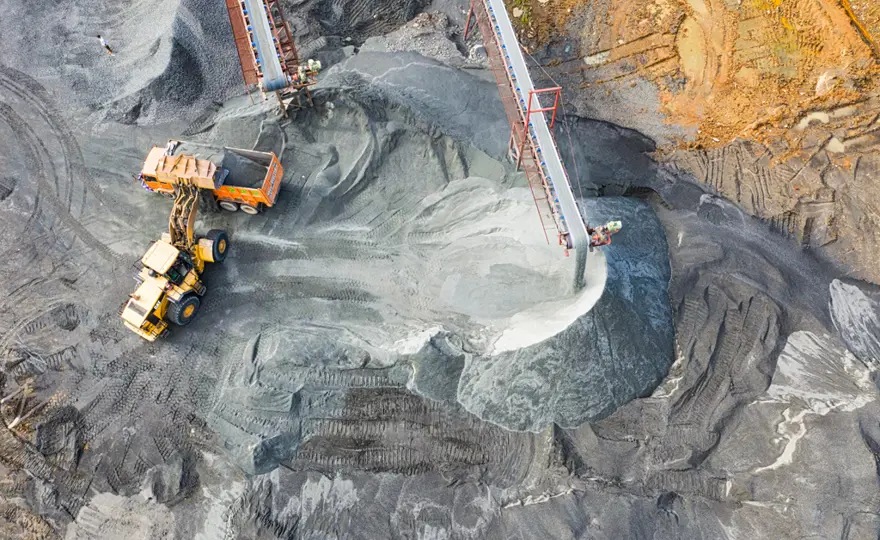ClientEarth Communications
8th September 2022


We’re part of a multi-group complaint in Australia against Glencore – one of the world’s largest coal companies – that argues its net zero claims are misleading investors and the public about what its coal production plans mean for the climate.
Lawyers from ClientEarth are supporting and assisting the case to be brought by the Environmental Defenders Office, on behalf of The Plains Clan of the Wonnarua People (PCWP) and Lock the Gate Alliance. The complaint has been lodged with Australia’s corporate watchdogs against Glencore because our lawyers and the complainants believe their claims about its climate impact are flawed, and misleading.
While we’re supporting this complaint in Australia, Glencore’s climate promises matter in the UK where it is listed on the London Stock Exchange, which is why we’ve called upon the UK’s Financial Conduct Authority (FCA) to coordinate a robust regulatory response to address the coal giant’s claims.
Net zero by 2050 means rapidly phasing out coal, the most polluting of the fossil fuels. Glencore claims to have a realistic decarbonisation plan as part of its net zero strategy, but the legal review found serious flaws in its plan.
The complaint argues that Glencore, which largely produces emissions from coal, relies on the wrong decarbonisation pathway for its net zero commitments.
Our research reveals Glencore is not using a coal-specific net zero pathway, despite approximately 90% of its emission coming from coal – thus avoiding a pathway that would require it to make much more drastic emissions reductions, and rethink its current business plans.
In fact, the company appears to be further fueling the climate crisis through its ongoing attempts to expand its coal presence in Australia. The complaint alleges the company is therefore misleading its investors and the public.
Our lawyer Maria Petzsch said that Glencore, “persists with its coal production in an increasingly hothouse world while promising alignment with net zero by 2050 – all by relying on a particular emissions scenario.
“The issue is that this scenario isn’t actually applicable to a coal business like Glencore, which needs to reduce coal production rapidly if its business is to align with a liveable climate,” Maria said.
We’re not alone in voicing concerns about Glencore’s coal activities. The investor Bluebell Capital Partners has publicly criticised Glencore for its continued coal business, saying it is not a company to be invested in by shareholders who place sustainability at the heart of their investment process.
The Intergovernmental Panel on Climate Change (IPCC) has repeatedly warned that we must transition away from fossil fuels to renewable energy as quickly as we can in order to keep warming below 1.5 C – the world’s agreed aim under the Paris climate agreement.
However, research has highlighted that there are plans to produce 120% more fossil fuels by the end of this decade than is consistent with keeping the world under this threshold. We simply cannot allow such a future.
Glencore, like many companies, is still expanding its fossil fuel infrastructure, and therefore cannot credibly claim real alignment with global net zero. By claiming its targets are aligned with 1.5 C scenarios, when this doesn’t appear to be the case, its statements create a distorted impression of its overall business model, the harm it creates, and the financial risks it is itself exposed to. And the lack of accurate information means further challenges for the global effort to decarbonise.
If the Australian Competition & Consumer Commission (ACCC) and Australian Securities & Investments Commission (ASIC) ultimately find that Glencore has violated the Corporations Act 2001 and/or Australian consumer law as alleged, the company could face fines and penalties, as well as an injunction which would prevent the commodity company from making similar misleading claims in the future.
It would also put on notice other big firms the world over that may be promoting inadequate net zero pledges that they cannot make sustainability claims without clear evidence to back them up.
The community groups behind the complaint has raised real concerns over Glencore's behaviour towards the Traditional Owners of Australian land when they have courageously stood in the way of its coal mining projects.
Plains Clan of the Wonnarua spokesperson Robert Lester said: “Glencore’s behaviour towards Traditional Owners at its mines is anything but respectful. It is part of Aboriginal lore that everyone, Indigenous and non-Indigenous, should work together to ensure that we look after the land for future generations to come.”
Lock the Gate Alliance National Coordinator Carmel Flint said: “Climate change is one of the key challenges of our time and with it has come a fundamental shift in global policy and public sentiment against the use of fossil fuels.
“It has also led to efforts by companies with climate wrecking business models to downplay their contribution to polluting emissions with spin. It’s what we’re seeing here in this case with Glencore,” she said.
When asked by the press if its recent public advertising campaign in Australia about its transition was greenwashing, Glencore’s spokesperson denied this and said the company had been “very transparent about our climate change commitments and the responsible managed decline of our global coal business.” In response to the EDO’s complaint, the company said that its climate change strategy has been publicly communicated, and that it will "review the materials and claims made by the EDO and their clients and are happy to assist ASIC and the ACCC with any enquiries they may have on these matters."